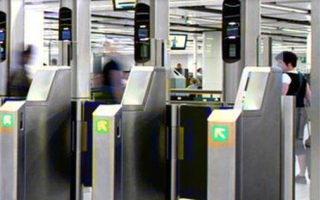- City Fajr Shuruq Duhr Asr Magrib Isha
- Dubai 04:20 05:42 12:28 15:53 19:08 20:30
With temperatures around 50°C in the UAE, we can say that we are experiencing summer at its hottest. It is time to be sure how to deal with heat, and with heat illnesses of these occur.
Every year authorities reach out to residents, visitors, employers, employees, schools and others to create awareness about the dangers of excessive heat. Dubai Municipality runs its annual safety campaign; several authorities in Abu Dhabi have joined hands in its annual safety in the heat programme. All have the same message; the heat of the UAE requires awareness.
When the human body is confronted with heat, it responds through sweating and evaporation in order to release the heat. If the surrounding air is high in temperature and level of humidity, this process becomes problematic. The body will not be able to release all its heat and this may have mental and physical consequences.
Heat stress is the result. It can occur in different stages and be fatal, if not treated properly. However, it can be avoided if precautions are taken, and awareness about heat stress is there.
What are the symptoms?
Mostly, heat stress is categorised in three stages: heat cramps, heat exhaustion, and heat stroke.
Heat cramps is the least serious condition. It is serious enough, because it could form a warning of more serious heat-related illnesses. Symptoms are heavy perspiration, feeling tired and thirsty, and experience of painful muscle cramps or muscle spasms. A heat rash could come up, and the victim can experience nausea, loss of appetite and irritability.
Heat exhaustion sees some similar symptoms but in more serious form: profuse perspiration, fatigue, weakness, poor coordination and restlessness are common, paired with a cold, clammy, pale skin. The victim could experience headache and vomiting, a weak but rapid pulse, and faintness. The body temperature is usually above 38°C.
Heat stroke is a very serious condition and could be fatal. As with the other conditions, the victim experiences headache, nausea and dizziness. The skin is not cold and clammy, but flushed, hot and unusually dry as the body has used all its water and salt resources. There is a high body temperature, and the victim can suffer from confusion or a fast-developing deep unconsciousness.
What to do in case of heat stress?
When a person is suffering from any kind of heat stress, he needs to lie down, or be lied down if the person is unable to do so himself. Choose a cool place, and support the legs slightly elevated.
In case of heat cramps, one should massage the limbs gently to ease spasms or firmly if cramped, then apply ice packs.
Drinking water is always a good idea. In case of heat cramps, the victim will benefit from drinking an electrolyte replacement solution. This solution includes sodium, potassium, magnesium, and calcium and hydrates your body.
The drink could also be beneficial in case if the more serious heat exhaustion. However, if the victim is vomiting medical assistance should be sought directly.
Meanwhile, loosen the clothes of the victim and fan and spray with water.
In case of a heat stroke, medical assistance should always be sought immediately. While waiting for the assistance, the victim needs to be stripped of his outer clothes and cooled down by applying cold water or a wet sheet. If the victim is conscious, he can sip water.
A good way to determine whether you are suffering from heat stress is by checking your urine: it should be pale yellow. If it is darker than usual, you should be alarmed.
How to avoid heat stress
Nutrition is one of the most important factors in regulating the way the body responds to heat. Because the body responds to heat through sweating, hydrating the body sufficiently is most important.
Drinks containing caffeine speed up the dehydration; coffee, karak tea, normal tea and energy drinks are non-advisable during the UAE summer, so are sugary drinks and alcohol.
Water is always good. The amount of water required depends on the sweat rate which in turn is determined by the work rate, age, weight and gender of the person. Sweat rates vary considerably and increase with acclimatisation. An average adult is advised to drink around 2 liters of water a day, considering no physical exercise was involved.
Hydrating drinks can either hydrate your body, or restore hydration after dehydration occurred. God hydrating drinks contain sodium, potassium, magnesium, and calcium and carbohydrates on a 4-6% rate.
When it comes to food, spicy food should be avoided. Good are fruits and vegetables, which contain plenty of natural fluids.
Other tips to prevent heat stress: have plenty of sleep, if possible schedule outdoor activities in the early morning or late evening, and take time to acclimatise.
ALSO READ:
Dubai Airports get smart gates: You can now clear immigration in 20 seconds flat

What do UAE residents want to do during Ramadan?
![]() Follow Emirates 24|7 on Google News.
Follow Emirates 24|7 on Google News.